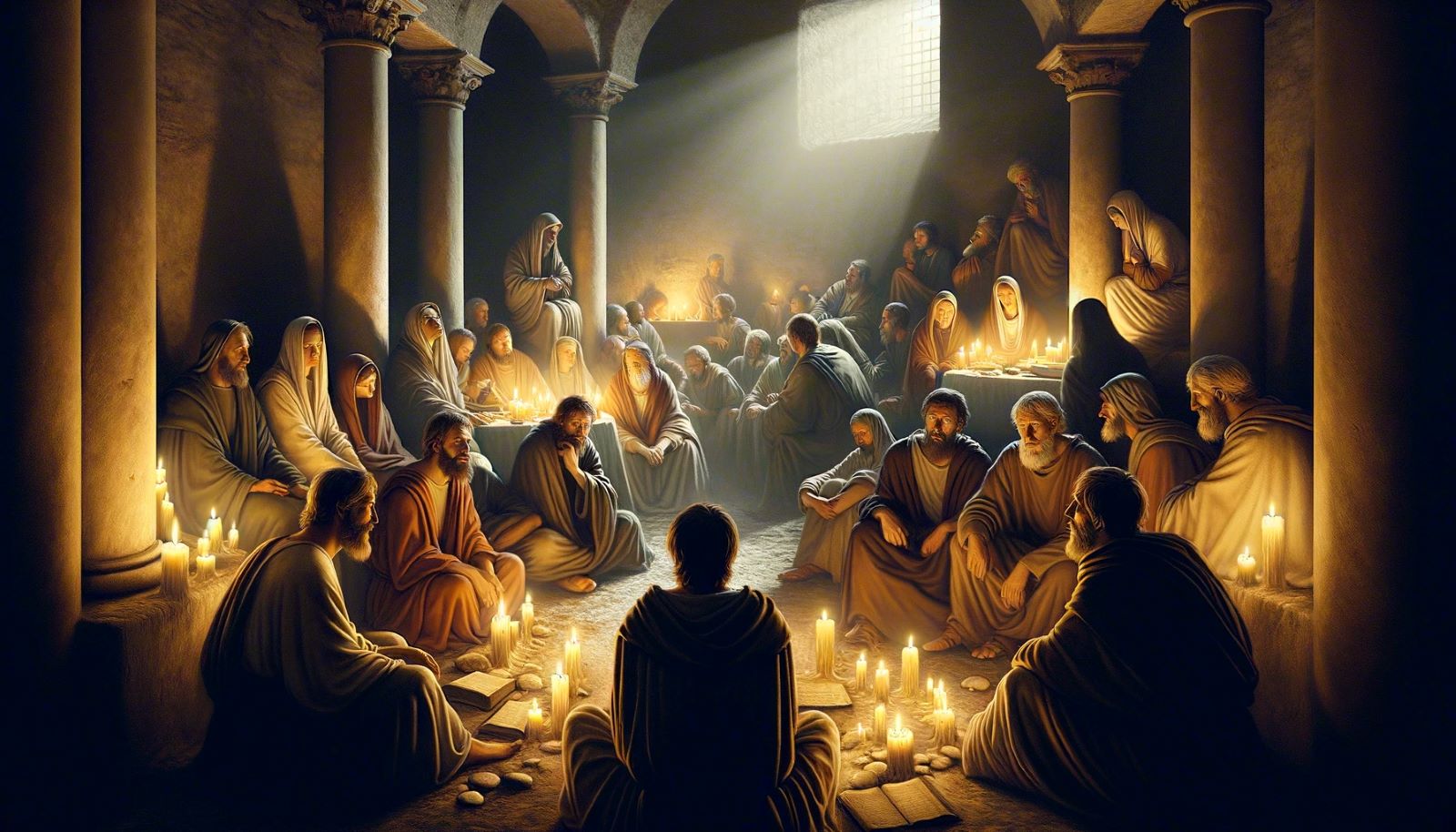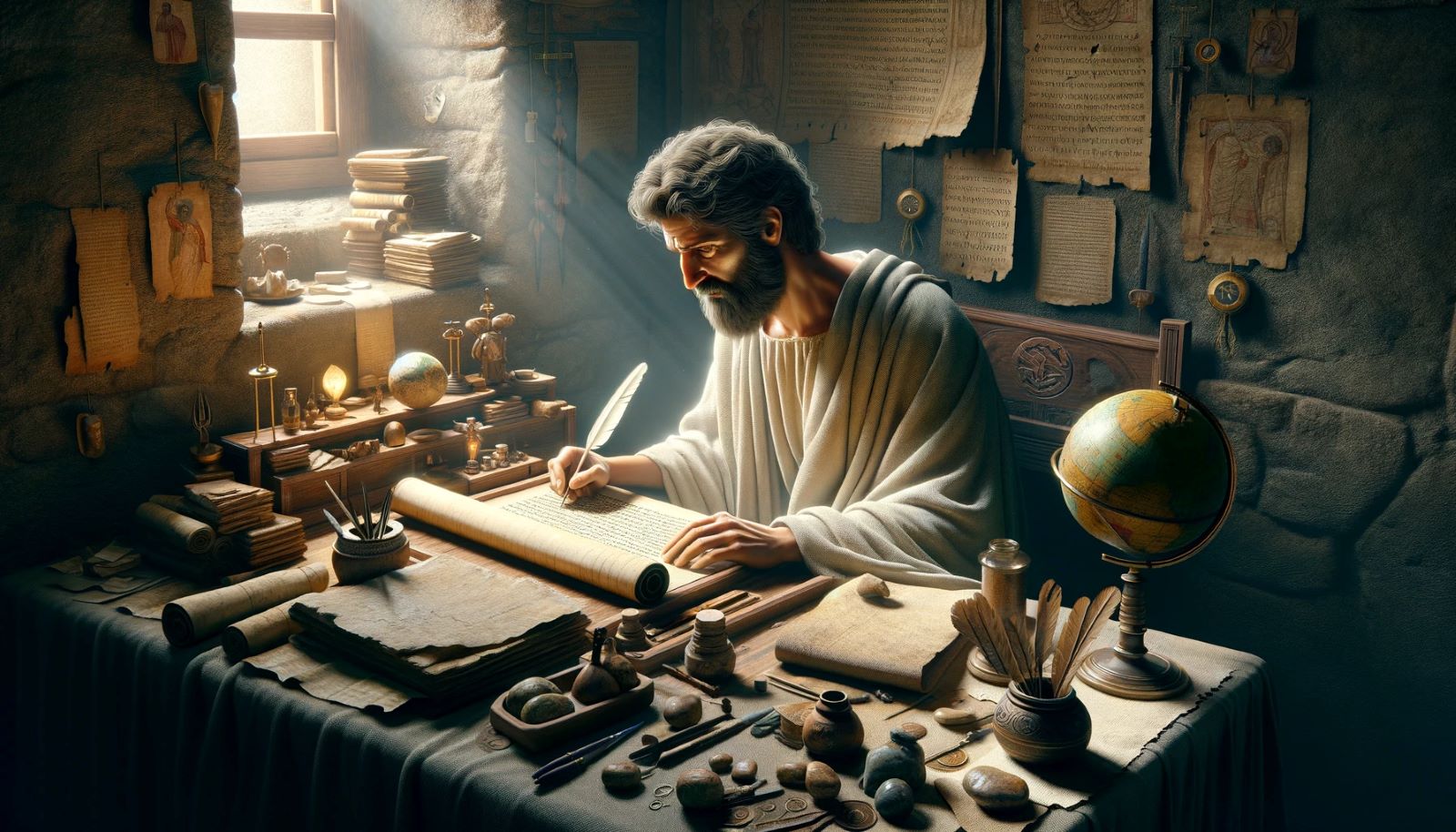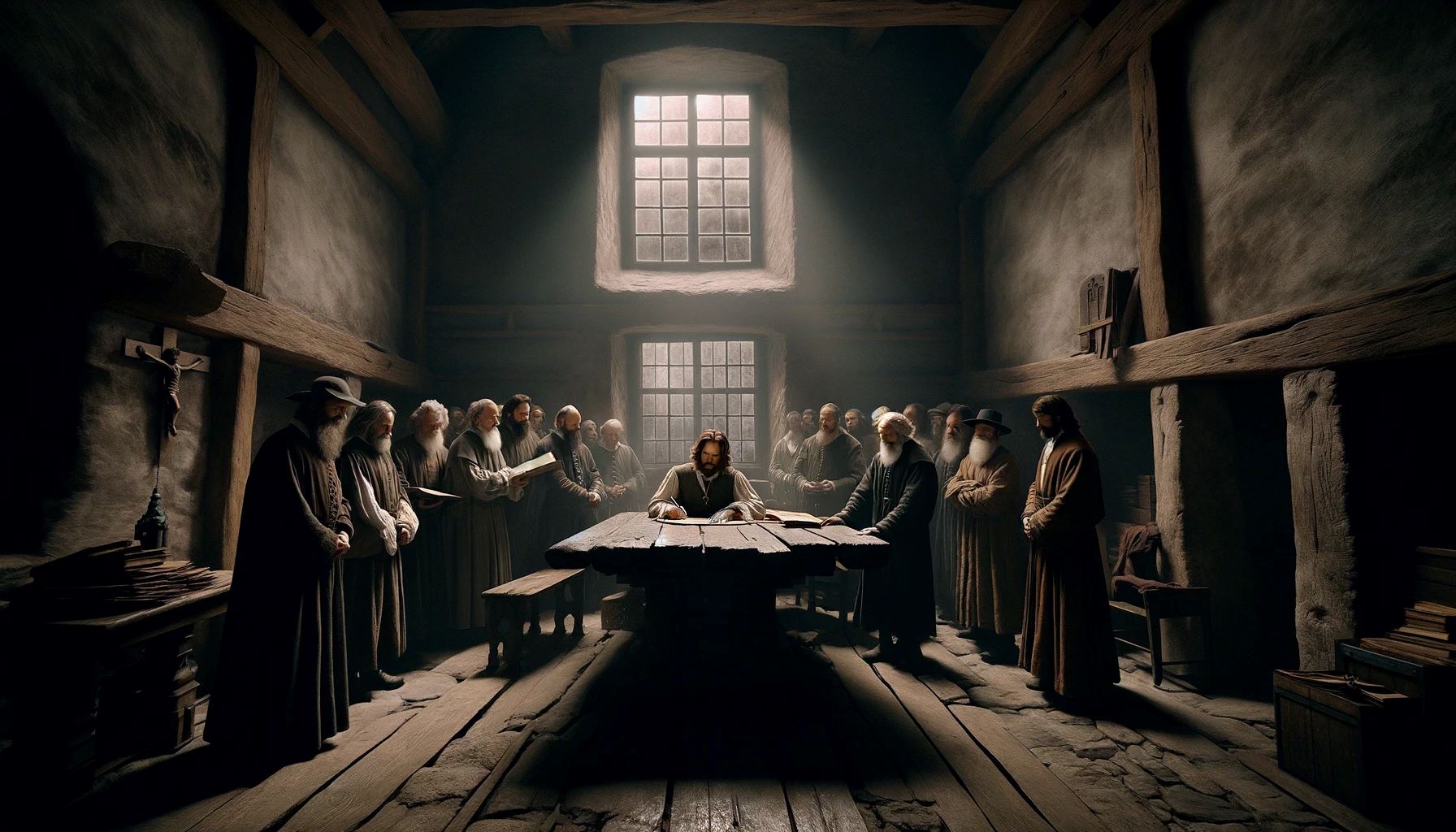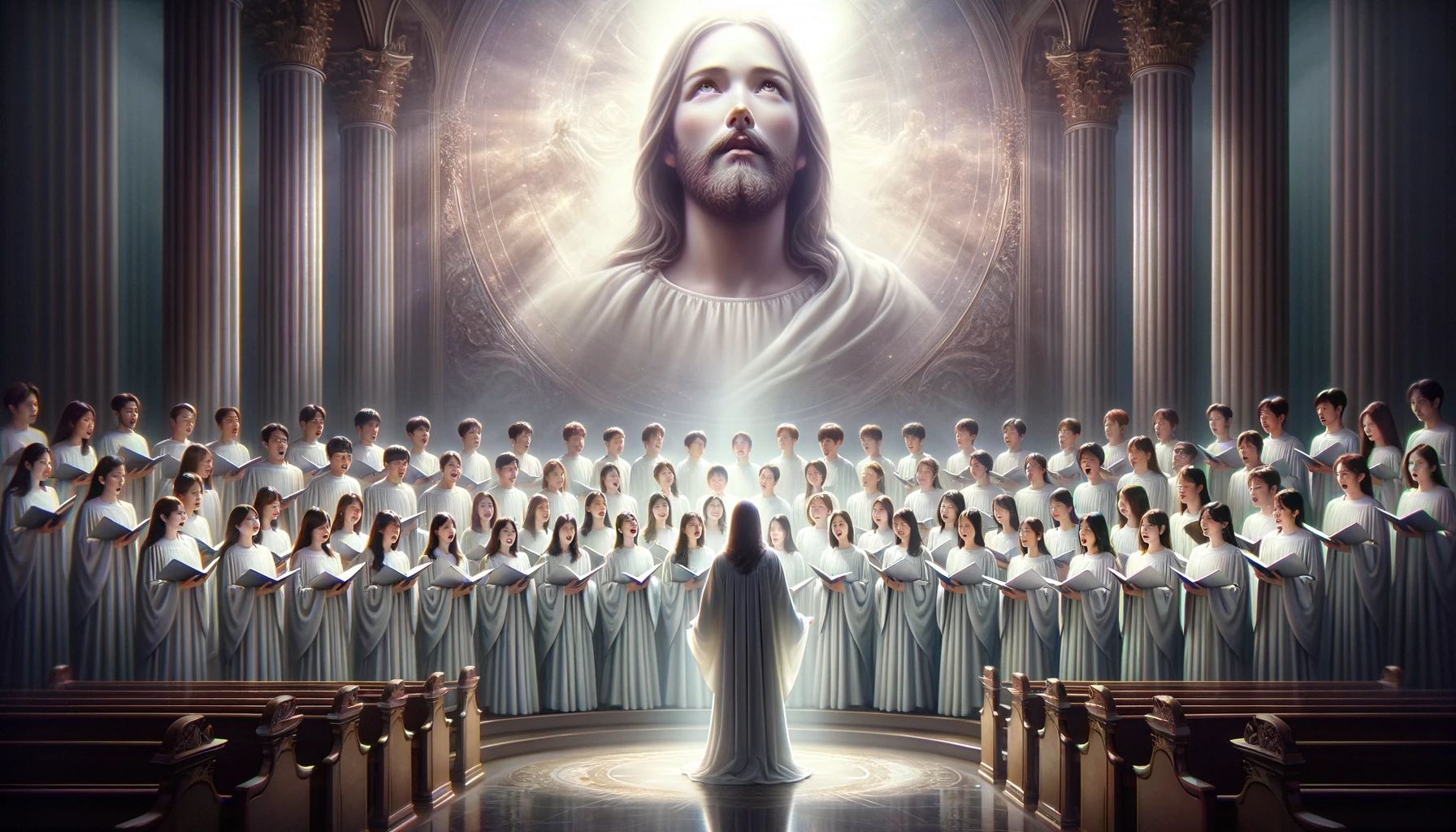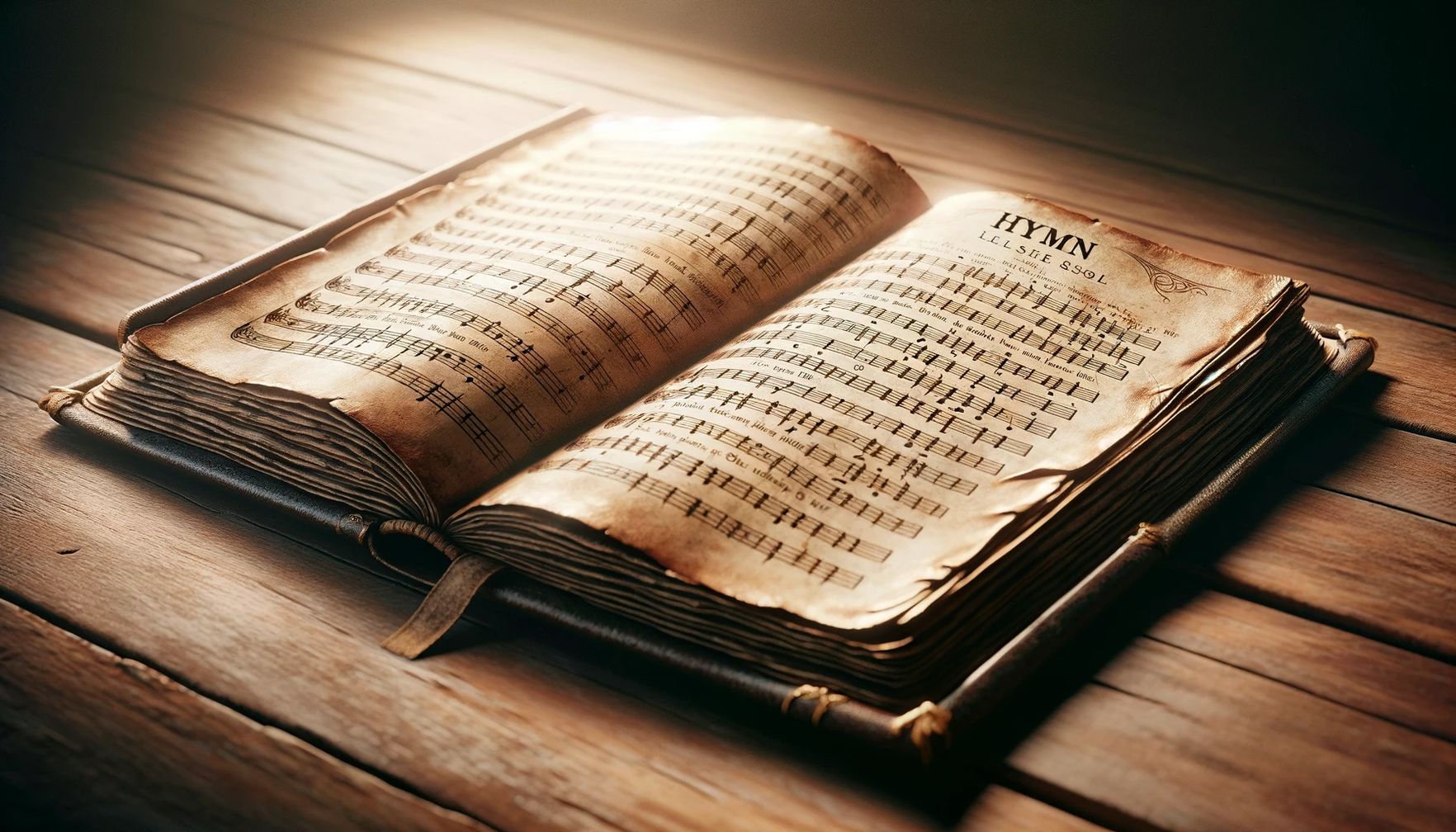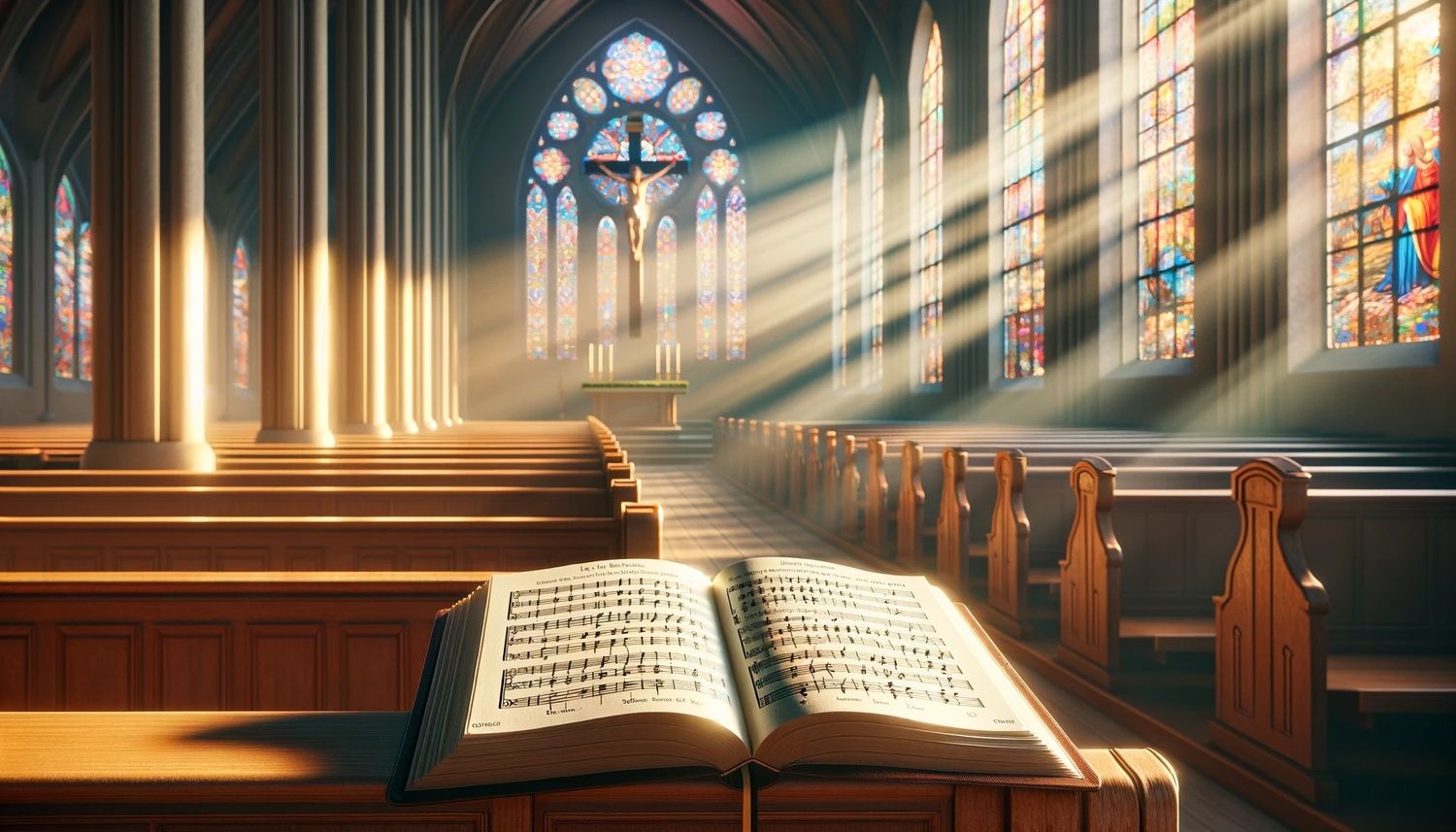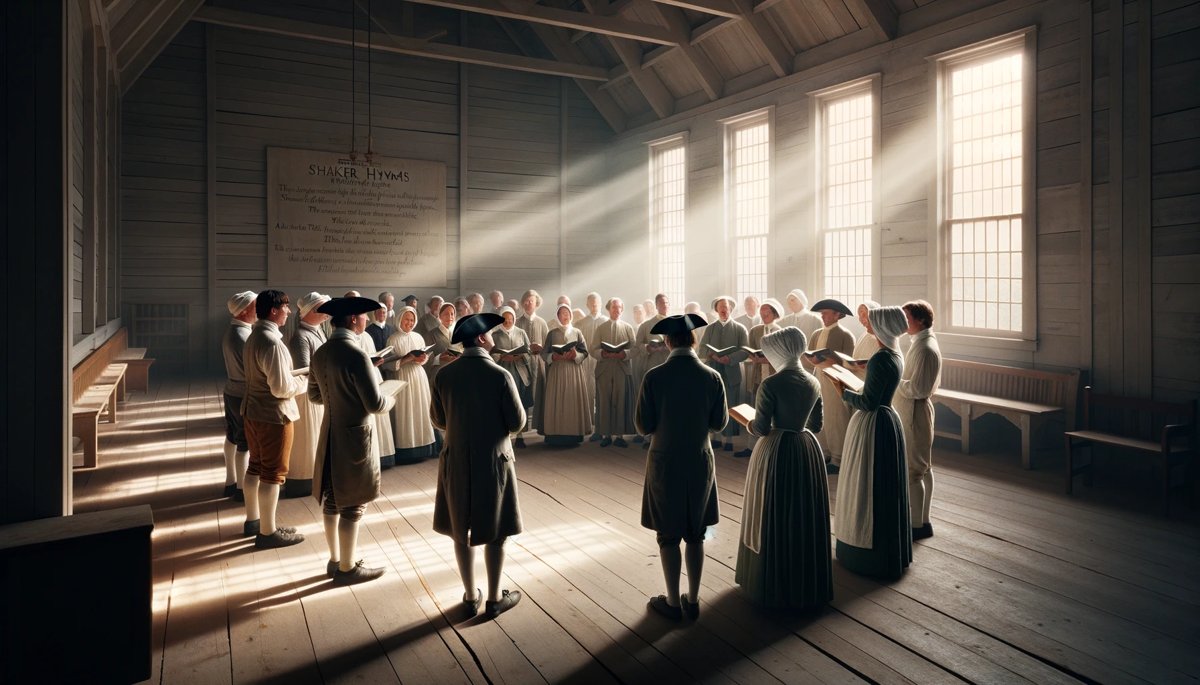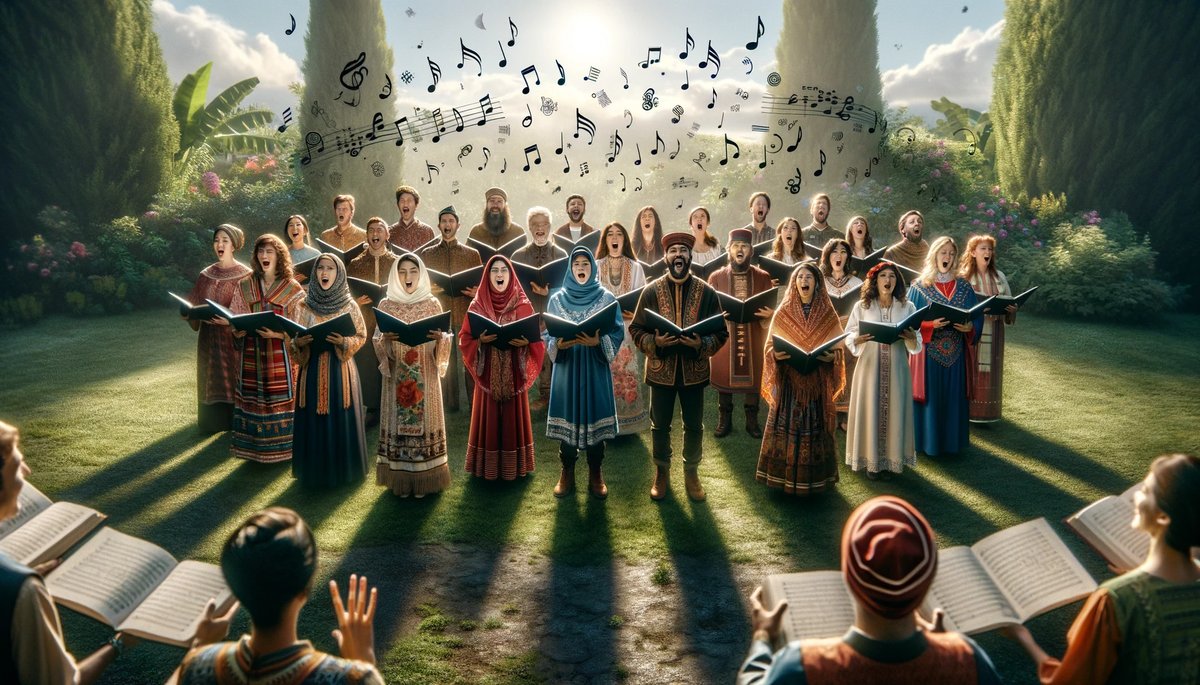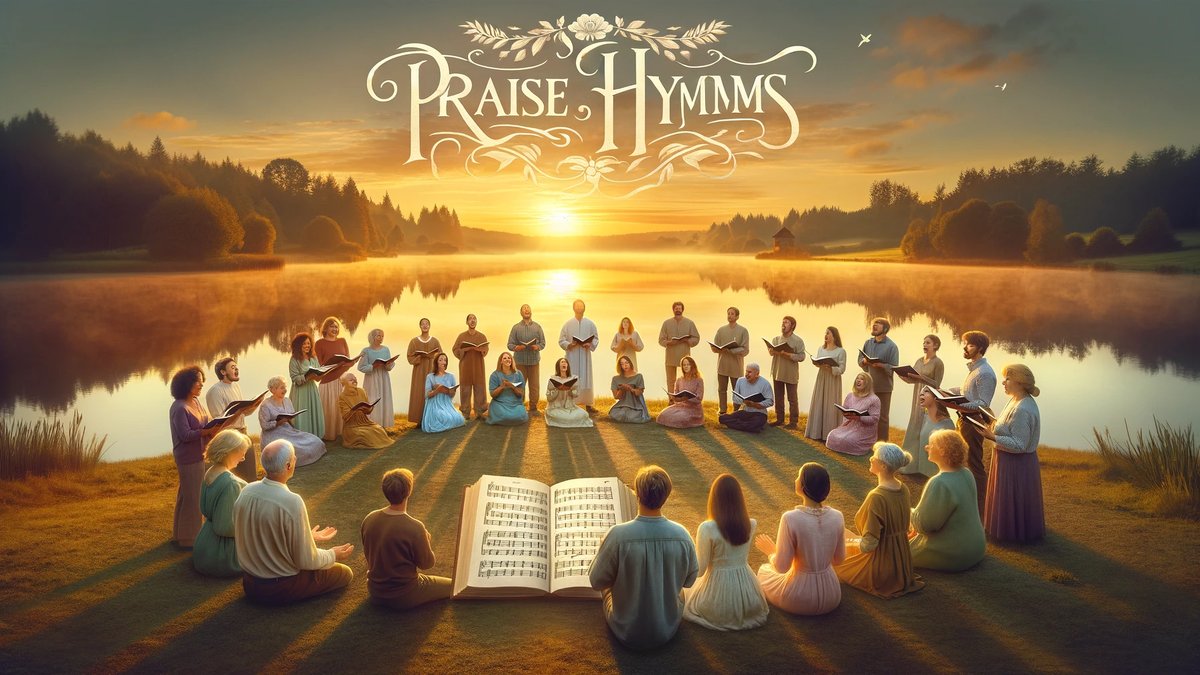Home>Arts and Culture>Who Wrote The Homeric Hymns
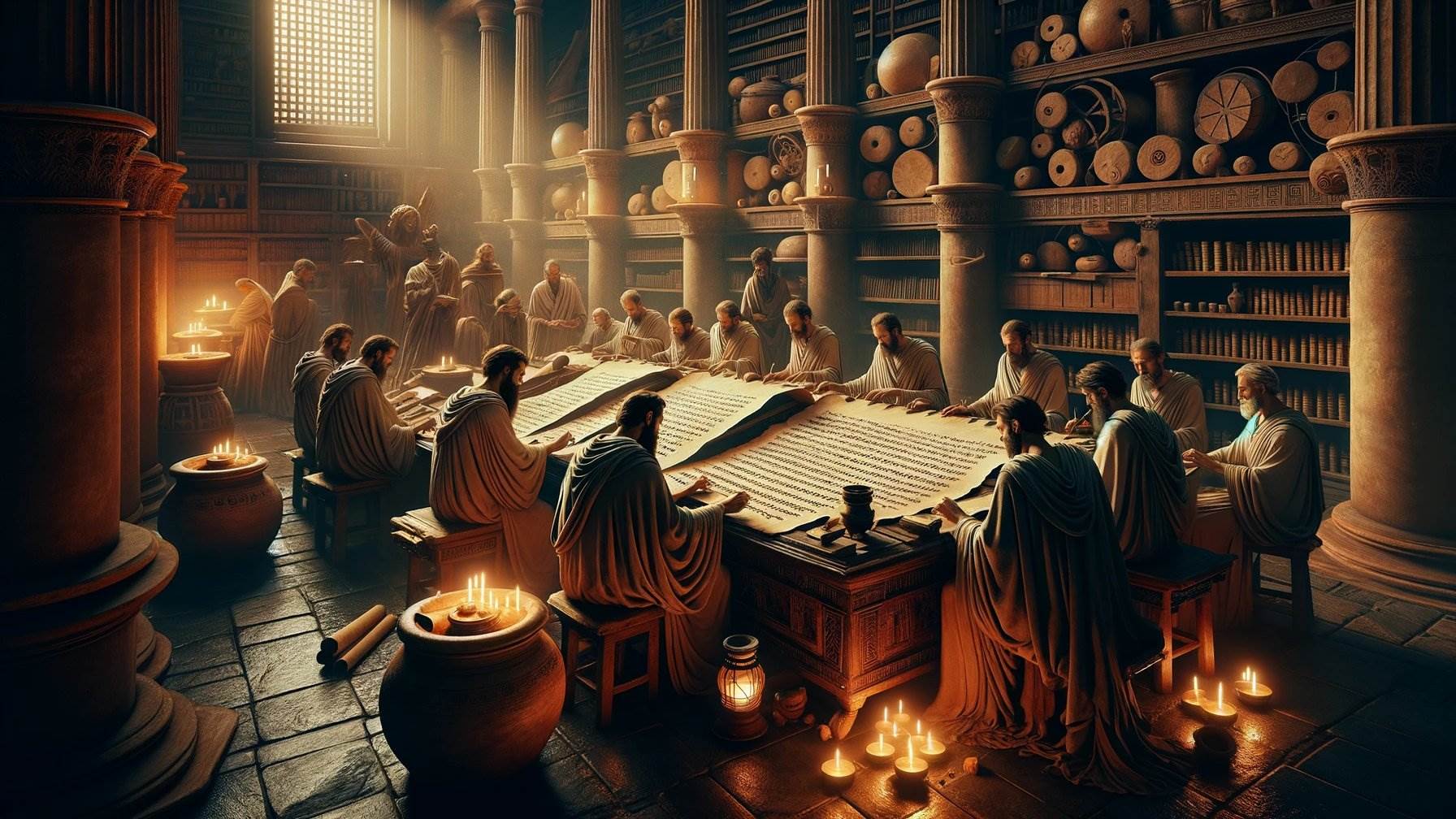

Arts and Culture
Who Wrote The Homeric Hymns
Published: March 7, 2024
Ericka Andersen, an editor at Christian.net, expertly merges digital strategy with content creation, focusing on faith and societal issues. Her communication skills enhance the platform's engaging narratives, fostering meaningful dialogue on belief's impact on society.
Discover the origins of the Homeric Hymns and the mystery surrounding their authorship in this insightful exploration of arts and culture. Uncover the secrets of ancient literature and mythology.
(Many of the links in this article redirect to a specific reviewed product. Your purchase of these products through affiliate links helps to generate commission for Christian.net, at no extra cost. Learn more)
Table of Contents
Introduction
Who wrote the Homeric Hymns? This question has puzzled scholars and enthusiasts of ancient Greek literature for centuries. The Homeric Hymns are a collection of 33 poems dedicated to various gods and goddesses in ancient Greek mythology. These hymns are attributed to the legendary poet Homer, but the authorship of these works has been a subject of debate and speculation. In this article, we will delve into the authorship debate surrounding the Homeric Hymns and explore the various arguments put forth by scholars regarding the possible authors of these ancient texts.
Read more: When Were The Homeric Hymns Written?
The Homeric Hymns: An Overview
The Homeric Hymns are a collection of ancient Greek poems that are dedicated to various deities of Greek mythology. These hymns are considered to be some of the earliest examples of Greek literature and are believed to have been composed between the 7th and 6th centuries BCE. The hymns are written in dactylic hexameter, a form of poetic meter commonly used in ancient Greek epic poetry. Each hymn is dedicated to a specific deity, such as Apollo, Demeter, Hermes, or Aphrodite, and they were likely used in religious ceremonies and festivals to honor and invoke the favor of the gods. The hymns provide valuable insights into the religious beliefs and practices of ancient Greece, as well as the mythology surrounding the various gods and goddesses. Despite their title, the Homeric Hymns are not believed to have been authored by the poet Homer, who is traditionally credited with composing the epic poems the Iliad and the Odyssey. Instead, the authorship of these hymns has been a topic of much scholarly debate and speculation.
The Homeric Hymns have been preserved through oral tradition and were likely performed and transmitted by professional bards known as rhapsodes. These hymns were an integral part of ancient Greek religious and cultural life, and they were revered for their poetic beauty and their role in honoring the gods. The hymns vary in length and style, with some being relatively short and others more expansive in their treatment of the deity they celebrate. The themes of the hymns range from the birth and exploits of the gods to the rituals and festivals associated with their worship. The Homeric Hymns continue to be studied and appreciated for their literary and religious significance, offering a window into the ancient world of Greek mythology and spirituality.
The Authorship Debate
The authorship of the Homeric Hymns has been a subject of much scholarly debate and speculation. While these hymns are traditionally attributed to the legendary poet Homer, many scholars have questioned whether he was indeed the sole author of these ancient texts. The authorship debate revolves around the question of whether the hymns were the work of a single poet or the collective efforts of multiple poets over time. This debate is fueled by the absence of concrete evidence regarding the identity of the hymns' author or authors, as well as the stylistic and thematic variations present within the collection. Scholars have put forth various arguments and theories in an attempt to unravel the mystery surrounding the authorship of the Homeric Hymns, leading to a rich and ongoing discourse within the field of classical studies.
Arguments for Various Authors
-
Collective Authorship: One prominent theory suggests that the Homeric Hymns were not the work of a single poet, but rather the result of a collaborative and evolving tradition of oral poetry. Proponents of this view argue that the hymns were composed and transmitted by multiple poets and performers over generations, leading to the incorporation of diverse styles, themes, and linguistic elements within the collection. This theory is supported by the presence of distinct variations in the language and narrative structure of the hymns, as well as the likelihood of oral transmission and improvisation in ancient Greek poetic traditions.
-
Influence of Oral Tradition: Another line of argumentation emphasizes the influence of oral tradition and performance on the composition of the Homeric Hymns. Scholars contend that the hymns were originally crafted for recitation and musical accompaniment during religious rituals and festivals, shaping their form and content. The fluidity of oral poetry and the communal nature of its transmission are cited as factors that could have contributed to the collaborative authorship of the hymns, with different poets contributing to and reshaping the texts over time.
-
Cultural and Regional Variation: Some scholars have proposed that the variations in style and content observed in the Homeric Hymns reflect the cultural and regional diversity of ancient Greece. According to this perspective, the hymns may have originated in different geographical areas and religious contexts, leading to the incorporation of local traditions and beliefs into the overall body of hymnic poetry. This argument underscores the dynamic and multifaceted nature of ancient Greek religious practices and the potential impact of regional influences on the composition of the hymns.
In light of these diverse arguments, the authorship debate surrounding the Homeric Hymns continues to captivate the attention of scholars and enthusiasts of ancient Greek literature. The quest to unravel the mystery of who wrote the Homeric Hymns remains an ongoing and fruitful endeavor, shedding light on the rich tapestry of oral poetry, religious expression, and cultural exchange in the ancient Mediterranean world.
Arguments for Various Authors
-
Collective Authorship: One prominent theory suggests that the Homeric Hymns were not the work of a single poet, but rather the result of a collaborative and evolving tradition of oral poetry. Proponents of this view argue that the hymns were composed and transmitted by multiple poets and performers over generations, leading to the incorporation of diverse styles, themes, and linguistic elements within the collection. This theory is supported by the presence of distinct variations in the language and narrative structure of the hymns, as well as the likelihood of oral transmission and improvisation in ancient Greek poetic traditions.
-
Influence of Oral Tradition: Another line of argumentation emphasizes the influence of oral tradition and performance on the composition of the Homeric Hymns. Scholars contend that the hymns were originally crafted for recitation and musical accompaniment during religious rituals and festivals, shaping their form and content. The fluidity of oral poetry and the communal nature of its transmission are cited as factors that could have contributed to the collaborative authorship of the hymns, with different poets contributing to and reshaping the texts over time.
-
Cultural and Regional Variation: Some scholars have proposed that the variations in style and content observed in the Homeric Hymns reflect the cultural and regional diversity of ancient Greece. According to this perspective, the hymns may have originated in different geographical areas and religious contexts, leading to the incorporation of local traditions and beliefs into the overall body of hymnic poetry. This argument underscores the dynamic and multifaceted nature of ancient Greek religious practices and the potential impact of regional influences on the composition of the hymns.
In light of these diverse arguments, the authorship debate surrounding the Homeric Hymns continues to captivate the attention of scholars and enthusiasts of ancient Greek literature. The quest to unravel the mystery of who wrote the Homeric Hymns remains an ongoing and fruitful endeavor, shedding light on the rich tapestry of oral poetry, religious expression, and cultural exchange in the ancient Mediterranean world.
Read more: Who Wrote “Jesus The Christ”
Conclusion
The authorship of the Homeric Hymns remains an enigma that continues to intrigue scholars and enthusiasts of ancient Greek literature. The debate surrounding the identity of the hymns' author or authors reflects the complexity and richness of ancient oral poetic traditions, as well as the diverse cultural and regional influences that shaped the religious and literary landscape of ancient Greece. Whether the hymns were the product of a single poet or the collaborative efforts of multiple contributors, their enduring significance as a window into the world of Greek mythology and religious expression cannot be understated. The ongoing exploration of the authorship debate not only deepens our understanding of the Homeric Hymns but also highlights the dynamic interplay of creativity, tradition, and communal expression in the ancient Mediterranean world. As scholars continue to unravel the mystery of who wrote the Homeric Hymns, the enduring allure of these ancient poems persists, inviting us to contemplate the timeless power of myth, poetry, and the divine in human culture.
